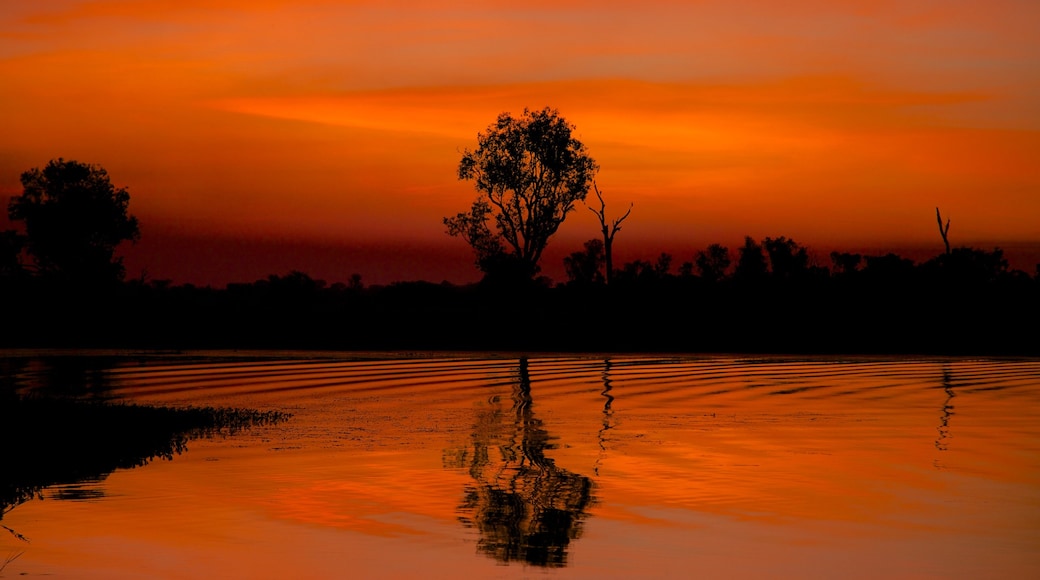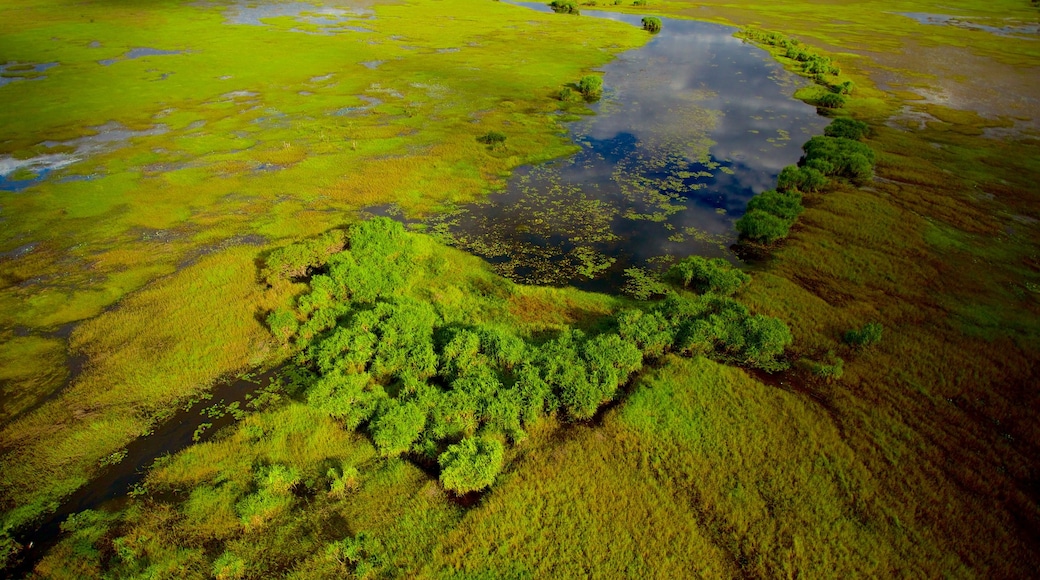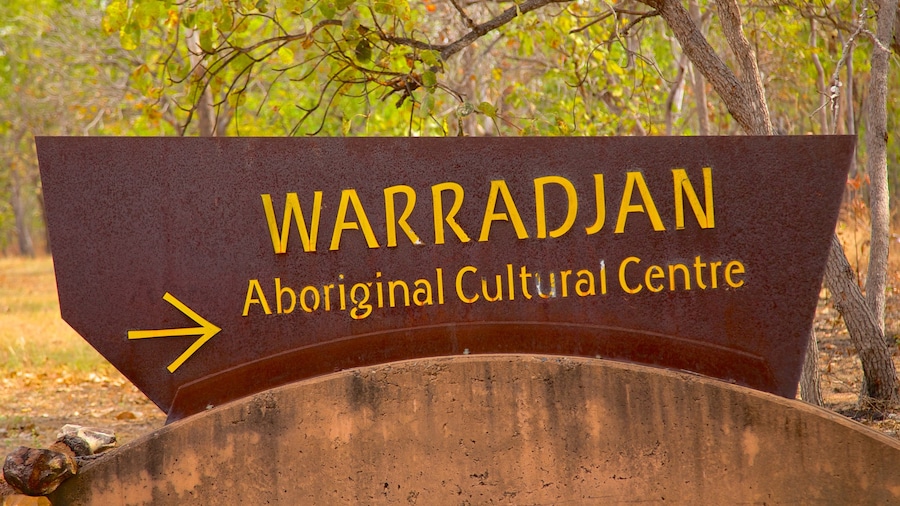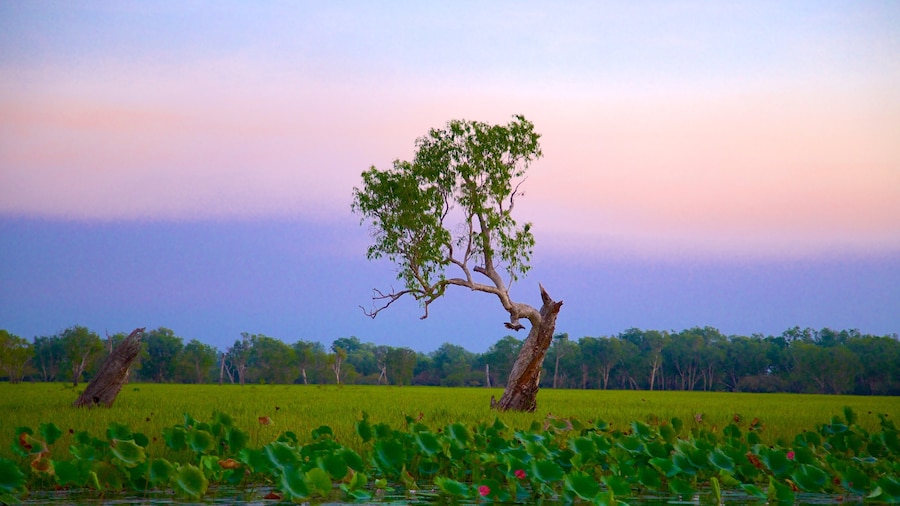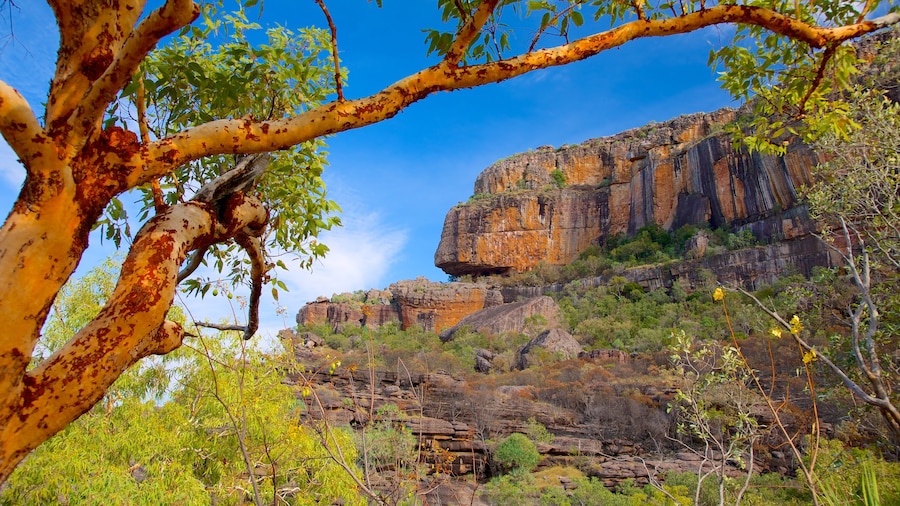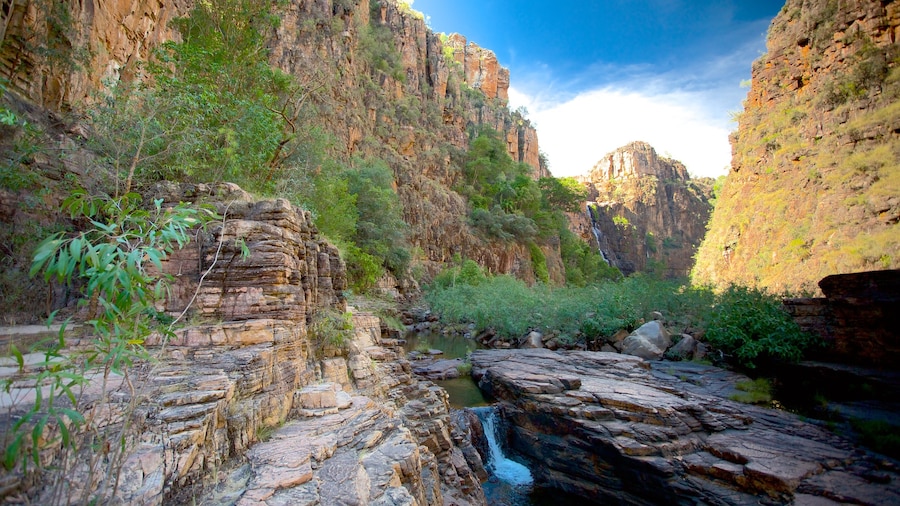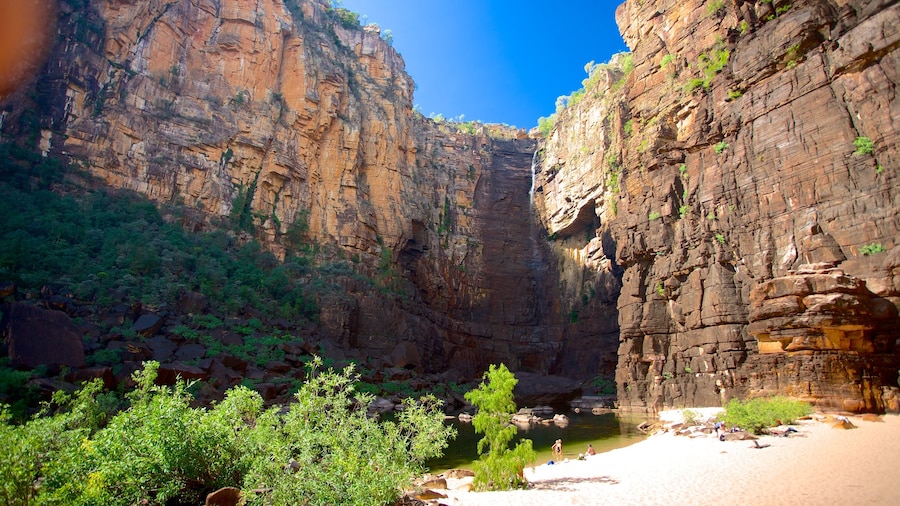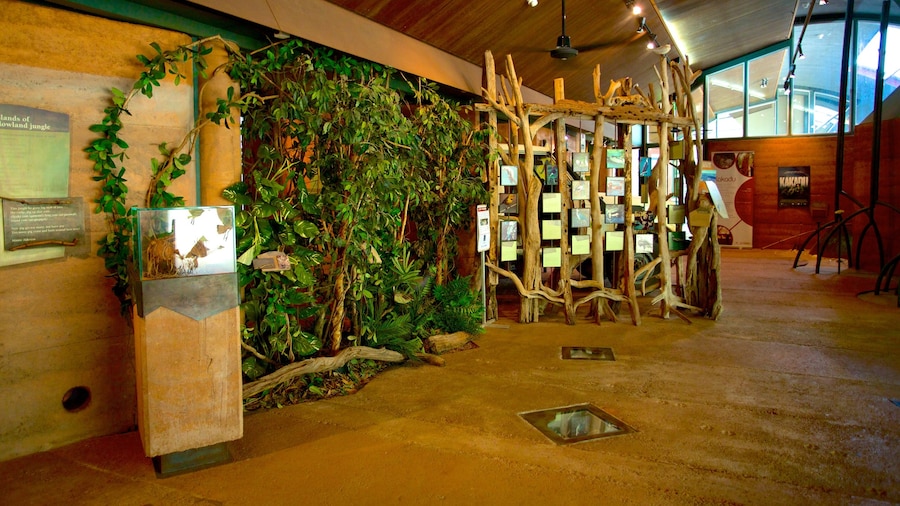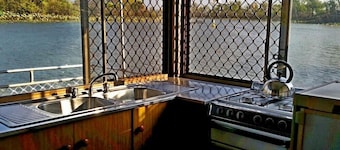Cruise past crocodiles, wander through vast eucalyptus forests to waterfalls and see ancient Aboriginal rock art in this national park in northern Australia.
Kakadu National Park is the largest national park in Australia, a vast protected wilderness of waterfalls, cliffs, wetlands and savannah woodlands. The complex of ecosystems supports a wide variety of plant and wildlife, including crocodiles, turtles and nearly 300 bird species. Hike through floodplains and along plateaus, go crocodile spotting and study ancient cave paintings and rock art to learn about the park's Aboriginal heritage.
Kakadu covers almost 20,000 square kilometres (7,725 square miles) and more than half of it is Aboriginal land. The park has been home to Aboriginal people for more than 50,000 years and today they live in its towns and settlements.
With so much space, there is a lot to see and do. Hike through a monsoon rainforest in the East Alligator region. Trek to waterfalls and swimming holes on the Yurmikmik Walk in the Mary River region. Photograph the spectacular Jim Jim Falls and Twin Falls, two large and powerful waterfalls. View wetland wildlife in the Yellow Water region then go on a boat cruise to spot crocodiles. There are approximately 10,000 crocodiles in the park and they can also be seen with a trip down the East Alligator River.
Explore Ubirr, Nanguluwur and Nourlangie Rock to see ancient rock paintings, some of which are up to 20,000 years old. They depict hunting scenes, religious ceremonies and Aboriginal ancestral beings who were thought to have created the world.
Kakadu National Park is a 2-hour drive from Darwin and the most convenient way to get around is by car. Alternatively, sign up for a bus or four-wheel drive tour. Although the park is open throughout the year, flooding in the wet season, between November and April, makes some areas inaccessible. One of the best times to visit is from May to October, the dry season.
You will need to purchase a pass to enter the national park. The pass is valid for 14 consecutive days and can be purchased at several outlets, including the Bowali Visitor Centre near Jabiru and the Tourism Top End Visitor Information Centre in Darwin. The centre in Darwin will help you find accommodation should you decide to stay a while in the area to fully appreciate the park’s fascinating landscape, ancient culture and wildlife.



